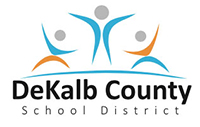2018 – 2021 technology plan provides roadmap for future ready learning environment
On July 9, the DeKalb County School District (DCSD) reaffirmed its commitment to delivering an innovative, future-minded, and streamlined education.
DCSD’s chief information officer, Gary Brantley, presented the district’s Technology Plan to the DeKalb County Board of Education on July 9. The Technology Plan provides a roadmap for the district with regards to technology, and outlines tech-related goals for the next three years.
An in-depth look at the new technology plan can be found on the technology plan webpage.
“The DeKalb County School District is proud to lead by example when it comes to innovative technology in education,” said Superintendent/CEO Dr. R. Stephen Green. “We’re showing our students, staff and stakeholders that there is no limit to what can be achieved in DeKalb County, and technology plays a key role in that endeavor. This new technology plan reaffirms our commitment of providing the best, most accessible education in the metro Atlanta area and beyond.”
For 2018-2021, the new DCSD Tech Plan expects to continue improving infrastructure, create an empowered learning environment, focus on data governance, provide more opportunities for professional learning, and forge community partnerships.
The new tech plan is the product of multiple DCSD administrative offices—including information technology, curriculum and instruction, finance, and human capital resources—as well as input from DeKalb County stakeholders.
Past tech plan goals included anytime and anywhere access for students, infrastructure improvements, better communication, learning opportunities for employees, as well as integrating a data-driven business model to improve instruction.
Brantley said an empowered learning environment allows students to take control of their overall education experience. By providing innovative technology to students, the district can cultivate students who can constantly be active, creative, knowledgeable and ethical in a globally connected society.
 “We want to give students the keys,” Brantley said. “We want to give them access. We want them to explore – all the time, everywhere.”
“We want to give students the keys,” Brantley said. “We want to give them access. We want them to explore – all the time, everywhere.”
Under the new tech plan, DCSD hopes to continue improving its tech-related infrastructure. This includes increasing network securities, increasing bandwidth, improving devices—everything to keep the district on the cutting edge of technology.
“This is a must,” Brantley said. “We want a reliable and accessible network.”
Over the course of the next three years, DCSD also hopes to continue governing data. This includes keeping up with federal privacy laws as it relates to data; establish a district protocol on data; continuing to use data to inform instruction; and provide data literacy opportunities to employees
“Students are becoming more and more aware of what’s going on and what we’re doing with their data,” Brantley said. “Data is on the radar and it’s very important. Where does it go? How do we protect it? How do we move it morally and ethically across the internet? We believe our students need this information to move forward.”
The new tech plan will also continue to provide employees with tech-centered professional learning opportunities. By allowing employees to integrate technology into their daily work—be it on the bus, in the classroom, or in an office—DCSD can tailor its education to best fit the needs of students.
“Professional learning is nonstop,” Brantley said.
In the same way, the new tech plan hopes to expand the district’s community partnerships. Through expanding technology, DCSD can collaborate with students, families and community members to provide an ever-evolving learning environment.
Brantley said the Digital Dreamers initiative—which aims to place a device in the hands of every DCSD student—has garnered interest from the local business community. As of January 2018, more than 50,000 devices have been delivered to students at every grade level; more than 5,000 mobile hot spots have been given to students; more than 10,000 students have been provided wireless access; and more than 600,000 student logins have taken place throughout the district.
Overall, almost 7,000 courses have been completed by students online.
“Since we started this program, I have seen more interest from community businesses partners than I’ve seen since I’ve been here in the last seven years,” Brantley said. “It’s a testament to the notion that if you start something and move forward, and people see it, it draws interest inside the community.”
In August and September 2018, DCSD plans to complete its Digital Dreamers initiative. This will involve distributing approximately 25,000 more devices to students.
A complete outline and rollout schedule can be found on the Digital Dreamers website.


